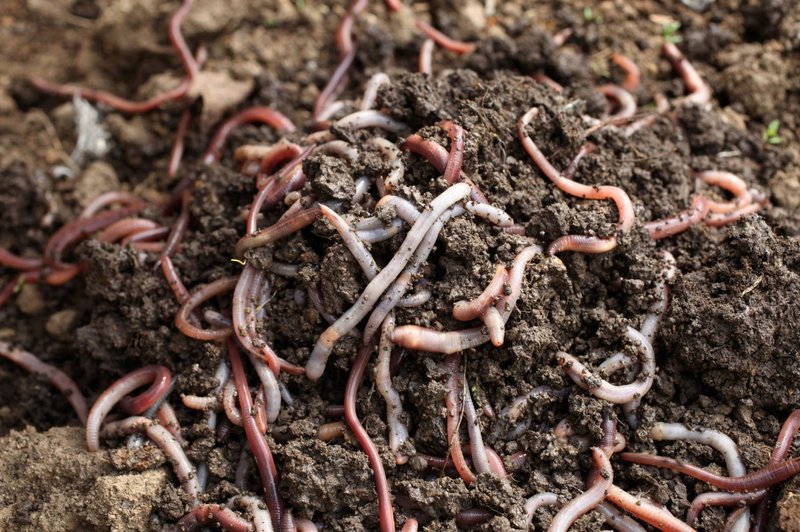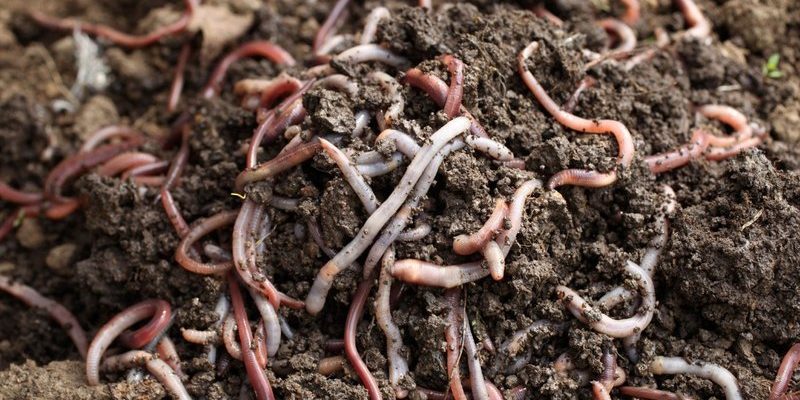
Vermicomposting is a fancy term for composting using worms to break down organic waste into nutrient-rich fertilizer. It’s like sending your kitchen scraps to a luxury spa where they return as excellent plant food. If you’re new to this, you might be wondering which types of earthworms are best suited for this mission. Let’s dive into the top five earthworm species that can make your composting efforts a total win.
1. Red Wiggler Worms (Eisenia fetida)
Red wigglers are the rockstars of the vermicomposting world. These little guys thrive in compost bins, making them perfect for beginners. Unlike ordinary earthworms, they love staying near the surface, munching on decaying food and organic materials.
One of the cool things about red wigglers is their incredible reproduction rate. They can multiply rapidly, which means more worms to help you process your compost. Their castings—essentially worm poop—are packed with nutrients, helping your plants grow strong and healthy. If you want a thriving composting operation, red wigglers should be your go-to choice.
2. European Nightcrawlers (Eisenia hortensis)
If red wigglers are the rockstars, then European nightcrawlers are the reliable backup singers. They are slightly larger and can handle a wider range of environmental conditions. While they do enjoy surface-level food, they’re also comfortable burrowing deep into the soil. So, they can work their magic in your compost bin and your garden simultaneously.
Another neat thing about European nightcrawlers is their ability to tolerate cooler temperatures, making them a good option if you live in a chillier area. They add plenty of nutrients to your compost and, when mixed into your garden soil, further enrich it. If you want a versatile worm, this species is a solid choice.
3. Red Worms (Lumbricus rubellus)
Often confused with red wigglers, red worms are another excellent option for vermicomposting. They’re particularly good at breaking down organic matter quickly. Their fast metabolism means they can munch through kitchen scraps like nobody’s business.
Red worms thrive in a range of conditions, making them resilient little creatures. They can even handle slight fluctuations in temperature and moisture levels. If you’re a bit inconsistent with your composting routine, these worms can bounce back without too much fuss.
4. African Nightcrawlers (Eudrilus eugeniae)
Now, if you’re looking for high-performance worms, the African nightcrawlers might be your best bet. These worms are known to be larger and produce copious amounts of nutrient-rich castings. They do prefer warmer temperatures, so they’re excellent for indoor composting systems or warmer climates.
What sets African nightcrawlers apart is their voracious appetite—they’ll feast on all sorts of organic material, including fruit and vegetable scraps, coffee grounds, and even paper. Their aggressive composting abilities can significantly speed up your composting process, giving your plants that extra edge they need.
5. Canadian Nightcrawlers (Lumbricus terrestris)
Last but not least, we have the Canadian nightcrawlers. These guys are larger than typical composting worms and are often seen as garden helpers rather than traditional composters. Although they’re not the first choice for vermicomposting, they can still play a role in enhancing the overall health of your garden soil.
Canadian nightcrawlers can burrow deep into the ground, aerating the soil and improving drainage. While they might not munch through kitchen scraps as quickly as their cousins, they do help create a well-balanced ecosystem in your garden. If you’re looking for worms that serve multiple purposes, consider adding these to your collection.
Choosing the Right Worm For Your Needs
Now that you know about these five amazing earthworm species, how do you choose the right one for your vermicomposting system? It really depends on your individual needs and circumstances.
– **Location**: If you’re in a cooler climate, European nightcrawlers might be a better fit. For warmer environments, African nightcrawlers could speed up the composting process.
– **Space**: If you’re limited on space, red wigglers are small and can thrive in compact bins.
– **Output**: Consider what you want from your composting efforts. If you aim for rich, nutrient-dense fertilizer quickly, African nightcrawlers are hard to beat.
It’s also possible to mix different species to create a diverse ecosystem in your compost bin. Just make sure you provide the right conditions for each type to thrive.
Vermicomposting is a fantastic way to reduce waste and enrich your garden with natural fertilizers. By choosing the right earthworm species, you can set yourself up for success in your composting journey. Remember, each worm brings its unique strengths to the table, whether it’s the rapid processing of red wigglers, the flexibility of European nightcrawlers, or the multitasking abilities of Canadian nightcrawlers.
As you embark on this eco-friendly adventure, keep it simple, experiment, and enjoy the process! You’ll be amazed at how these little creatures can turn your scraps into something valuable for your plants and the environment. Happy composting!

